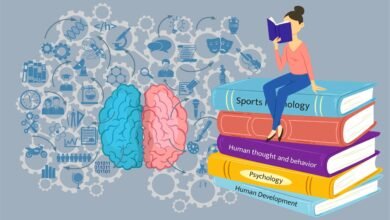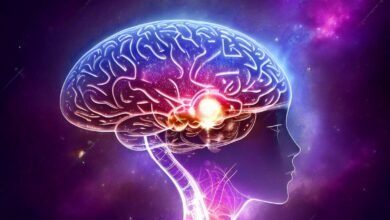What Is Racial Trauma?

What Is Racial Trauma?
Trauma can result when someone experience racism, discrimination, microaggressions, or other types of violence due to their racial origin.
One person may experience racial trauma on their own, or an entire community may do so at once.
Racial Trauma
A person of color who experiences racism and prejudice may experience racial trauma, commonly referred to as race-based traumatic stress. It encompasses the many psychological, mental, and emotional harm brought on by both observing and personally experiencing racism and prejudice.
The History of Racial Trauma
Robert T. Carter used the phrase “race-based traumatic stress” in his 2007 paper, “Racism and Psychological and Emotional Injury: Recognizing and Assessing Race-Based Traumatic Stress,” published on behalf of the American Psychological Association’s Division of Counseling Psychology.
According to Carter’s article, experiencing racism and discrimination has a significant negative emotional impact and may be comparable to post-traumatic stress disorder in Black, Indigenous, and people of colour (PTSD).
IMPORTANT
Race-based traumatic stress later started to be used interchangeably with racial trauma as it gained in popularity. No matter one is chosen, both have the same definition, and Carter is given full credit for the idea.
Symptoms of Racial Trauma
It is no secret that racism has historically and now had a profoundly detrimental effect on the lives of Black, Indigenous, and people of colour (BIPOC) in our society. There are no boundaries to the aspects of life that racism can affect, whether they be health issues for Indigenous People or the ways that discrimination affects college acceptance rates.
It should come as no surprise that the signs of racial trauma can present themselves in various ways given how pervasive and common racism is. The following are typical signs of racialized traumatic stress, according to the Association for Behavioral and Cognitive Therapies (ABCT):
- Concern and sadness
- Avoidance tactics
- Difficulty paying attention
- Humiliation emotions
- Hypervigilance
- Higher reactivity
- Reduced appetite
- A low sense of self
- Difficulty sleeping
- Nightmares
- Difficulty concentrating
The Impact of Racial Trauma
The long-lasting impacts of racism and the complexity of the issue further compound the effects of racial trauma. It is not a singular incident that only happens once; rather, it permeates culture, has an impact on almost every aspect of a person’s life, and causes repeated pain.
Racial trauma has far-reaching effects, as you might expect given how gravely and intensely it can appear:
- Lower self-worth and self-esteem are consequences of racial trauma. 5
- Black, Indigenous, and people of colour, especially Black people, experience the trauma of witnessing police brutality, which makes them dread the police, which can be disastrous if they ever need to rely on police aid.
- Serious emotional issues, such as dissociative symptoms, can result from racial trauma.
It can help in avoiding people, places, or circumstances that bring up unpleasant memories.
According to the American Psychological Association, many medical and mental health professionals underappreciate the severity and effects of racial trauma. Racial trauma is not recognised as a mental health problem in the DSM-5, the diagnostic guide used by clinicians to identify mental health conditions. 7
Additionally, racial trauma contributes to decreased wellbeing and mental health issues, such as:
Post-traumatic Stress Disorder (PTSD)
A natural reaction to a terrible incident is post traumatic stress disorder. When it comes to racial trauma, PTSD can develop as a result of experiencing or witnessing racial harassment or discrimination.
For instance, the murder of George Floyd was painful for Black people. The continual media exposure and graphic depictions of cruelty done to Black people exacerbated this trauma. Such incidents further increase people’s mistrust of law enforcement and foster a sense of insecurity about their safety.
In addition to the additional pain of reminding many people of individuals they had lost in similar ways, there was the added trauma that it might have been them or a loved one who was slain.
Chronic Stress
Racial trauma makes people more stressed out and, as a result, less psychologically healthy. The danger of long-term physical health issues rises when chronic stress is combined with populations that have historically received inadequate medical care. Chronic stress is unhealthy for everyone. Chronic stress is not only bad emotionally, but it is also dangerous medically since it makes sickness more likely.
According to research, perceived discrimination significantly contributes to health inequalities among BIPOC that are linked to chronic stress. This includes a higher risk of diabetes, hypertension, and unfavourable pregnancy results.
Depression and Anxiety
Trauma associated with race may also raise one’s risk of developing depression. Additionally, racial discrimination has been linked to worse mental health, and childhood trauma has been shown to increase adult depression.
It can result in unfavourable patterns of event interpretation, which can make it harder to deal with various elements of life, including both unpleasant and more enjoyable situations.
Although they might be signs of PTSD, sadness and anxiety can also be independent conditions. Both have a detrimental effect on a person’s everyday life and overall wellbeing.
IMPORTANT
Every aspect of life can be impacted by racial trauma, drastically lowering one’s standard of living. Its impacts are cumulative and are exacerbated by other parts of life, such as healthcare, education, and socioeconomic inequities, which are all impacted by racism and prejudice.
How to Cope With and Heal From Racial Trauma
Racism causes long-lasting trauma that has an impact on many aspects of life and deteriorates mental health. Racial trauma is continual, which makes it harder to deal with than some other types of trauma, which have a set amount of time to last. Accessing care for mental health issues resulting from racial trauma might be made more challenging by racism.
Although it is impossible to completely forget about racial trauma, many community organisations have found strategies to lessen and manage its effects. People can cope and lessen symptoms with the aid of these methods and techniques.
Connect With Others
You can overcome racial trauma by connecting with people and creating community. One way Black communities have overcome racism collectively is via storytelling.
A simple way to make friends and create community is by discussing the racial trauma you’ve gone through with a pal. There aren’t many BIPOC, if any, whose lives have been free from racial prejudice or discrimination.
Self-Care
You decide what constitutes self-care; it might be whatever you do to feel appreciated by yourself.
Self-care activities can be simple and inexpensive or sophisticated and expensive. You may go for a stroll in the park, relax in a candlelit bath, or get a massage.
You might keep a notebook or try meditation. Your sense of wellness will benefit from anything that makes you feel loved, and relaxing yourself can aid in trauma recovery.
Set Boundaries for Media Consumption
While keeping up with international events is necessary, it can also be gloomy and anxiety-provoking. Setting boundaries on how much media you consume might be beneficial for your mental health, particularly during times of societal crisis.
It’s likely that you will experience anxiety if you frequently read or watch news reports concerning violence against BIPOC.
Only you can determine the ideal balance for you, but if you notice that your media use is making you feel worse, you might want to cut back.
Seek Professional Assistance
You don’t have to recover from racial trauma alone, and counselling might be the best instrument for doing so. Finding a trauma-informed therapist who can relate to your experience in particular might be helpful.
While it’s not a need, you could find that you connect with your therapist more if they share your racial heritage because that creates a natural understanding of the more obvious aspects of life. Anyone who has dealt with trauma can benefit from counselling, and there is no shame in seeking it.
A Word From WinAspire
You may have had or are experiencing racial trauma if you are a person of colour or someone who has experienced discrimination due of your ethnic or racial heritage. While processing these feelings might be challenging, there are healthy ways to deal with them so that you can go on living your life to the fullest.
Speaking with a mental health expert can help arm you with the coping skills you’ll need to start healing if you find that you are unable to deal on your own or with the support of friends and family.











